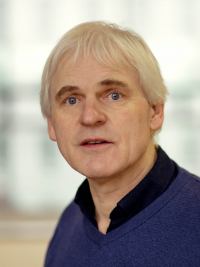Stadium Alliances in Football – Current Assessment and Perspectives
This research project is about a scientific exploration and initial evaluation of the stadium alliances, with the aim of developing transfer perspectives for further implementation and optimisation on site, for transferability to other federal states, as well as foundations for subsequent in-depth scientific evaluations.

Overview of the "DE – STA" research project
In the 2017/18 Bundesliga football season, "stadium alliances" were introduced in the first five football leagues in Baden-Württemberg, based on local and trusting cooperation between clubs and security authorities and aimed at conducting safe and successful football match days while reducing security efforts. In the meantime, stadium alliances have also been introduced in Lower Saxony and other federal states are interested in them. Since there is a lack of structured knowledge in this area, this research project is concerned with a scientific exploration and initial evaluation of the stadium alliances, with the aim of developing transfer perspectives for further implementation and optimisation on site, for transferability to other federal states as well as foundations for subsequent in-depth scientific evaluations. The specific research interests lie primarily in the composition of the groups of actors, the motives and goals, the self-image of stadium alliances, the characteristic development steps and structural core elements of the stadium alliances as well as their effectiveness and optimisation potential.
The qualitative study, which focuses in particular on stadium alliances in Baden-Württemberg and Lower Saxony, pursues a multi-method approach by means of document analysis, online focus groups and expert interviews. Both the actors on the ground as well as the organisations and institutions of football and the security authorities that accompany, support or even only observe the stadium alliances in supra-local positions are included. The research design integrates an orientation that is intended to open up spaces for reflection in the process and also generate recommendations for transfer potential that go beyond this.
Work programme: research strategy and methodological procedure
In terms of research philosophy, the basic ideas of use and development-oriented evaluation should be the guiding principles for this explorative study, because the "primacy of usefulness for practice over usefulness for science" (Univation 2011: n.d.) should apply, in which, in the sense of Patton (2008), knowledge relevant to practice development is generated for the management of the complex, dynamic context of football events.
In order to tap into the available knowledge as comprehensively as possible, a multi-stage, multi-method approach is favoured. On the basis of a document analysis, an initial systematic exploration of the field is to be carried out and a question focus enriched with content is to be created, which is to guide the detailed surveys related to the field of practice by means of focus groups (workshop discussions) and subsequent interviews. The focus groups, which aim to include representatives of all stadium alliances from Baden-Württemberg and Lower Saxony, will concentrate thematically on the aspects: Characteristics and special features of the local stadium alliances, effects of the local stadium alliances and development paths and perspectives of the local stadium alliances. The expert interviews with selected stakeholders from local stadium alliances and from the regional/supraregional practical context focus on supplementary perspectives such as overarching facts, assessments and development ideas and in-depth information, for example, on particularly interesting/insightful local constellations or work results as well as the club perspective, insofar as this does not appear to be sufficiently saturated in terms of substance after the initial evaluation of the focus group discussions.
Dissemination and Transfer Concept: Approach and Objectives
The study takes up the requirements, demands and ideas of the actors in stadium alliances, records the framework conditions, work processes and work results, in order to ultimately also work out their perspectives. As a result, the transfer concept should contribute to the existing local stadium alliances as well as the supra-regional authorities of the federal states (BW and NI) being able to use the results and evaluations to further develop their own practice. In addition, it aims to prepare empirically based knowledge and recommendations in such a way as to facilitate the establishment of stadium alliances in other federal states in the future.
Transfer and dissemination take place through reflection, discourse and development impulses, both in the phase of the implementation of the study (for example, through the fine-tuning of the research-strategic-methodical procedure with central stakeholders from the field of practice) as well as towards the end and after the project duration, such as through the implementation of an expert hearing, the coordination with the cooperation partners on topic-related further events as well as the dissemination of the results and evaluations, e.g. at expert conferences or in workshops. Ultimately, the elaboration of recommendations for a future in-depth scientific evaluation of the field of practice also contributes to the further dissemination of the concept of stadium alliances.
Contact
Project management

Dipl.-Soz. Andreas Klose
Project management
Prof. Dr Werner Steffan
Project participants
Heinz Joachim de Vries